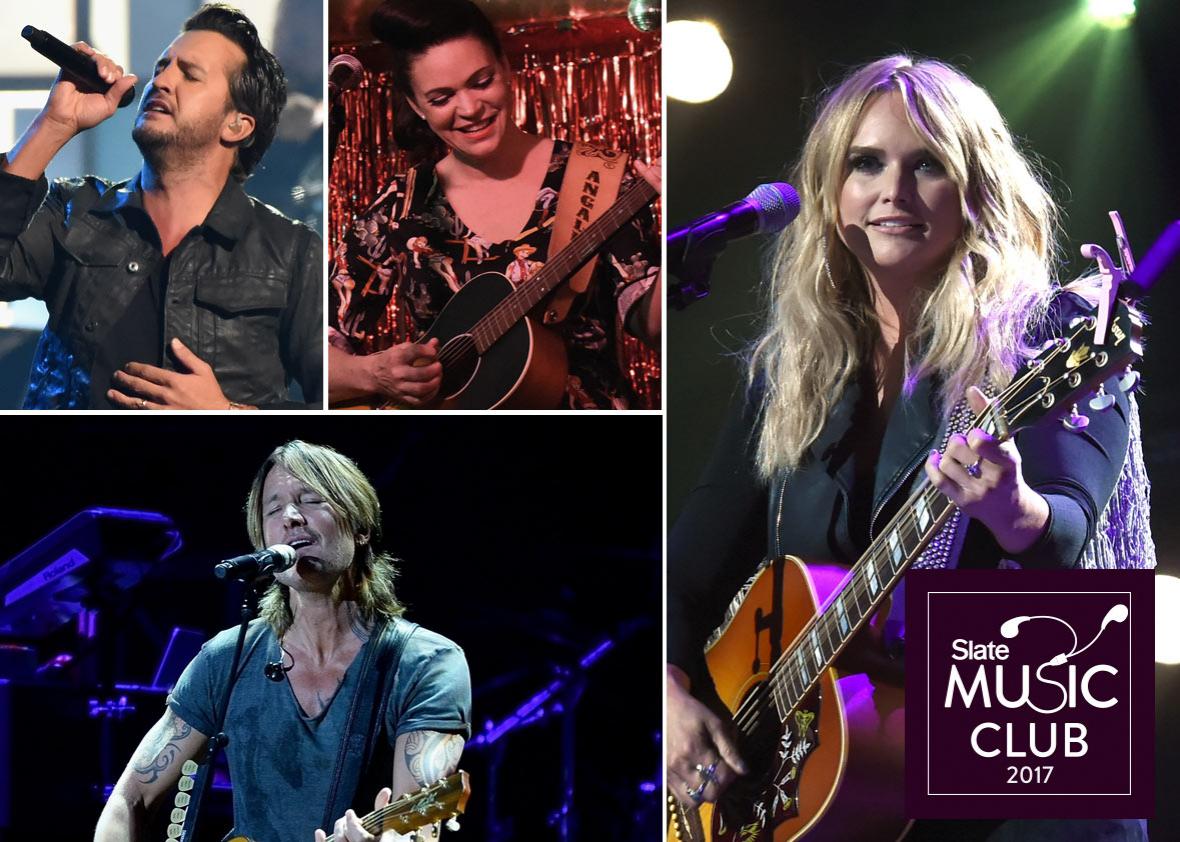Thanks for including me in the conversation again this year. In a batshit time like this, the opportunity to collectively process the past 12 months of music-making is an especially welcome thing.
Ann, you asked how I saw notions of home rewritten this year. I was struck by the way that artists across the country and Americana scenes—in which rootedness, stability, and preservation are very much core values—conveyed anxiety about the tenuousness of attachments in some of the year’s more memorable songs. Country singer Cam flipped the vantage of Dolly Parton’s “Jolene,” humanizing the other woman who was an unwitting accomplice in undermining a marriage. Thomas Rhett’s song “Marry Me” sounded like a sentimental portrait of a young couple bound for the altar, until the hook’s narrative twist revealed it to be a tale of bitter pill–swallowing (so bitter that a new music video softened the storyline’s blow). There was also melancholy reminiscing on fractured family history, pitying of a guy whose identity is bound up in the past, and the self-pitying of a guy who dismantled his loving home with his negligence. Angaleena Presley, who Carl mentioned already, pondered how constricting gender roles can make a prison of a partnership, while Jason Isbell dwelled on the inevitability of death separating lifelong lovers, and Charlie Worsham shared a cautionary tale of a man’s faithlessness making his daughter resent him. Worsham and Isbell each also injected self-conscious into narratives of Southern belonging. And Lizz Wright told me that she felt so alienated by the ugly, reactionary discourse that the presidential election stoked in her native South that she set out on a quest to restore her spiritual connection to the people and places she once knew. The inexhaustible patience and willful affection she projected through her reading of “Seems I’m Never Tired Lovin’ You,” famously recorded by Nina Simone, floored me.
A lot of other music felt to me like it was shaped around the emotional labor of creating a safe space for expression amid turmoil, whether personal, professional, social, or political. I’m thinking of Big K.R.I.T.’s double album, half of which he spends flexing his swaggering persona and the other half he devotes to explicitly autobiographical confessions. What moved me most was hearing him sort through feelings of responsibility and exploitation as a Southern black man in the rap industry, striving to meaningfully represent his background and experiences. I found the way that SZA, who’s already come up in our conversation a couple of times, framed her bracing frankness, demands, and disclosures to be powerful. She introduced and concluded her album with her mother’s clear-eyed insistence on self-knowledge and self-love. Sampha, who recorded his exquisite debut in the wake of his mother’s death, made room for unhurried processing. Then there was Lilly Hiatt’s Trinity Lane, a magnetic blend of post-punk and alt-country that I adored this year. Spread across its dozen tracks was vivid portraiture of a thirtysomething woman daring to own her anger, disappointment, delusion, and desire, devising new coping mechanisms, reasserting her independence, and reassessing what’s sturdy and reliable in her life.
Julianne and Carl, you both wrote of the power that personalized perspectives had for you this year. I definitely felt it, too. It’s what made the work of singer-songwriters across genres feel stubbornly grounded. Even mainstream country, which for years has had its own equivalent of what Carl described as a “triumphalist diva-pop sound” (more of a macho, hybridized, hip-hop– and nu metal–informed bluster), is undergoing a significant shift in its aesthetic values. I started noticing a couple of years ago that millennial acts were introducing a cooler, more casual tone of voice to the format, and by this year, a slew of acts, including Kelsea Ballerini, RaeLynn, Danielle Bradbery, and Walker Hayes, were redrawing the contours of country-pop as a more mellowed-out, scaled-back, zoomed-in mode of expression.
In the past, country performers tended to make their music feel personal, regardless of who wrote it, by convincingly inhabiting personas and extravagantly telegraphing emotions, so for younger acts to place greater emphasis on individuality and particularity is a huge change. But the connection between the personal and the political isn’t playing out the same way in country as it is in some other sectors of the pop music landscape. What we’ve gotten instead is a number of gently instructive songs appealing to relational ethics, some of them promoting general kindness and neighborly tolerance and others encouraging more conscientious masculinity and respectful treatment of women, though the intentions don’t always land. While you’ll find songs every year that lay out definitions of countrified identity, it was interesting to hear the format’s foremost centrist, Luke Bryan, dwell on the elasticity of that idea.
Meanwhile, in the distantly related but far more niche world of bluegrass, identity politics had a real impact. One of the highlight’s of 2017 for me was trekking to San Francisco for Bluegrass Pride, a series of events spearheaded by queer pickers and allies over the course of Pride Week. I treasured the way that it celebrated complex intersections of identities that tend to go unrecognized.
What rule-changing or transformative musical moments did the rest of you witness?
Jewly
